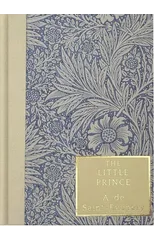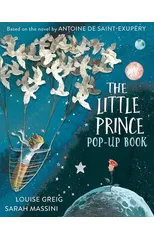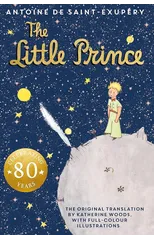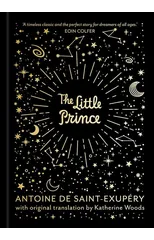The Little Prince is a classic tale of simplicity and immediacy that endears itself to both children and adults. The absence of childlike simplicity in a materialistic civilization is portrayed at the very start when the author's drawing of a boa constrictor that has eaten an elephant cannot be comprehended by adults, who believe it to be a hat. On one level it is the story of an airman's discovery in the desert of a small boy from another planet and his tales of intergalactic travel, while on the other hand it is a thought provoking fable or allegory. First published in 1943, it addresses most major social concerns of Saint-Exupèry's days and of modern times. This translation also contains the author's delightful illustrations.
Antoine de Saint-Exupery
Antoine de Saint-Exupery was a French writer and aviator born in 1900. He is best known for his novella "The Little Prince," which has become a classic of children's literature. Saint-Exupery's writing style is characterized by a poetic and philosophical approach, often exploring themes of human nature, love, and the search for meaning in life.
As a pioneer of aviation, Saint-Exupery drew inspiration from his experiences as a pilot, incorporating them into his works such as "Night Flight" and "Wind, Sand and Stars." His storytelling is marked by a sense of adventure and a deep admiration for the beauty of the natural world.
Saint-Exupery's contributions to literature have had a lasting impact on the genre of fables and allegorical storytelling. His works continue to be celebrated for their timeless wisdom and universal themes, making him one of the most influential writers of the 20th century.






